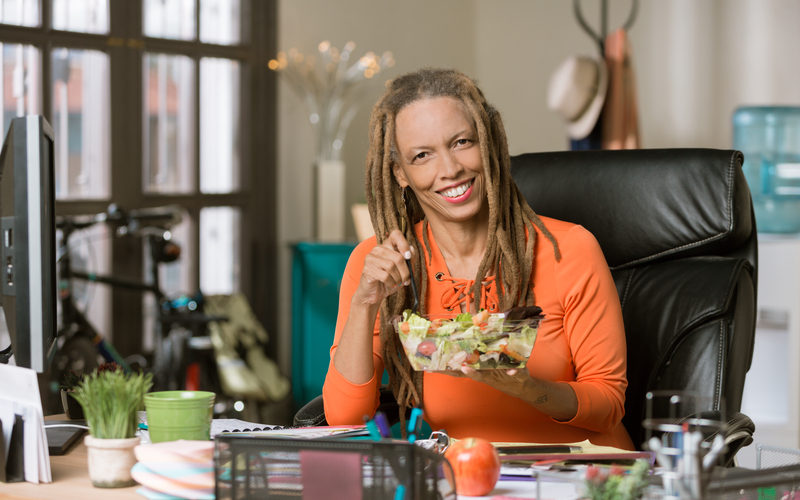 It used to be simple when discussing dietary lifestyle choices. You were a meat-eater or a vegetarian, right? Then came more extremes –“whole food” eating that eliminates processed food, and veganism that cuts out all animal products. But now, not everybody wants to limit their food identity to “strictly this” or “exclusively that.”We recognize that too much meat-eating can be bad for us, and that it’s generally a good idea to eat more plants. So, more and more people are grazing somewhere in between, with a loosely defined idea of “plant-based” eating. This just means you’re getting most of your nutrients from plant-based food but you also include meat sometimes. More popular is taking a meatless day once a week.“Plant-based” ideas are more realistic. They let us see the benefits of eating less meat without feeling pressure to take on a lifestyle.
It used to be simple when discussing dietary lifestyle choices. You were a meat-eater or a vegetarian, right? Then came more extremes –“whole food” eating that eliminates processed food, and veganism that cuts out all animal products. But now, not everybody wants to limit their food identity to “strictly this” or “exclusively that.”We recognize that too much meat-eating can be bad for us, and that it’s generally a good idea to eat more plants. So, more and more people are grazing somewhere in between, with a loosely defined idea of “plant-based” eating. This just means you’re getting most of your nutrients from plant-based food but you also include meat sometimes. More popular is taking a meatless day once a week.“Plant-based” ideas are more realistic. They let us see the benefits of eating less meat without feeling pressure to take on a lifestyle.
A Convert on the Road
Bruce Mylrea went through life enjoying meat, French fries, and more components of what he now calls “the worst diet on the planet.”It contributed to his diagnosis of late-stage prostate cancer when was 52. That led him to adopt a whole-food, plant-based diet. If his earlier diet promoted the cancer, he decided to adopt a new one to fight it. Now healthy, Bruce and his wife, Mindy, have written new books about plant-based eating, and they are traveling the country in a mobile home promoting their OneDayToWellness.org website. Their diet relies heavily on what Mindy calls “the beautiful buffet of foods that nature has provided us,” including beans, peas, lentils and seeds; whole grains; high-fat healthy foods like avocados, nuts, and olives; and vegetables and fruit. The Mylreas say they feel and move better and enjoy greater health. Instead of meat, they have found culinary delights with mushrooms, tempeh, and soy. They’ll favor a black bean/quinoa burger over a traditional cheeseburger.“Humans are not designed to eat dairy,” Bruce says. “The research is crystal clear.”
Not Everyone Has to Go So Far
“Meat is often loaded with cholesterol and saturated fat, which have starring roles in poor heart health,” says the American Heart Association. “And processed meats like deli meat, bacon, and sausage often have too much sodium as well. On the other hand, lean meats, skinless poultry, and fish can be good sources of protein.”Plant-based foods are now in 53% of households, according to industry reports. Carl’s Jr. and Burger King have introduced plant-based meat alternatives. Supermarkets teem with“milk” made from almonds, oatmeal, cashews, soy, and pea protein. Only 8 million Americans are vegetarians, but 60 percent want to eat less meat–with weight management and health the main motivators. People in their 50s want emotional wellbeing, mental health, and family time; they’re spending less on meat, alcohol, and caffeine. Baby Boomers, more than any group, have healthy aging on the brain, changing diets to improve health. So talk about it with your family, friends and doctor and us. What’s one easy thing you can do to replace one meat-based meal with a plant-based one?
Holly Kouvo is a personal trainer, functional aging specialist, senior fitness specialist, brain health trainer, writer, and speaker.

